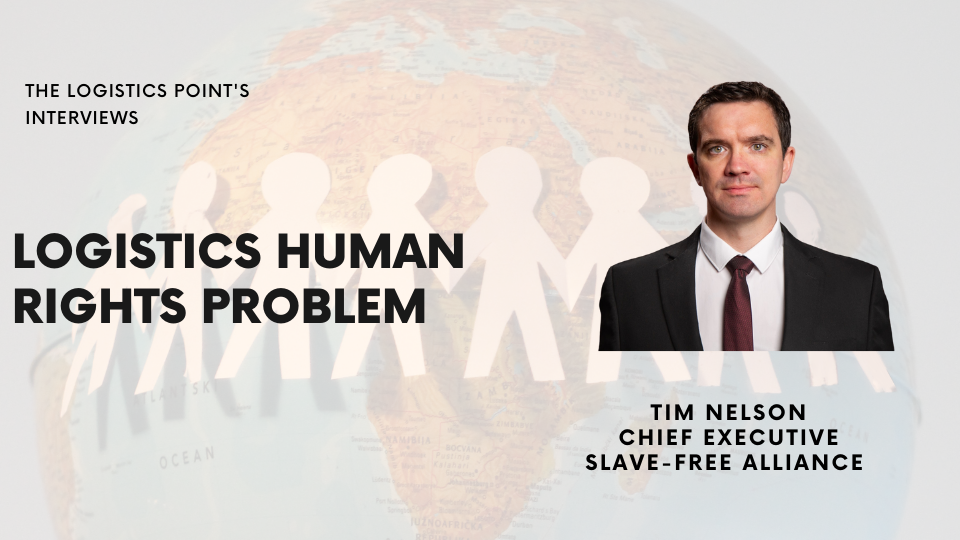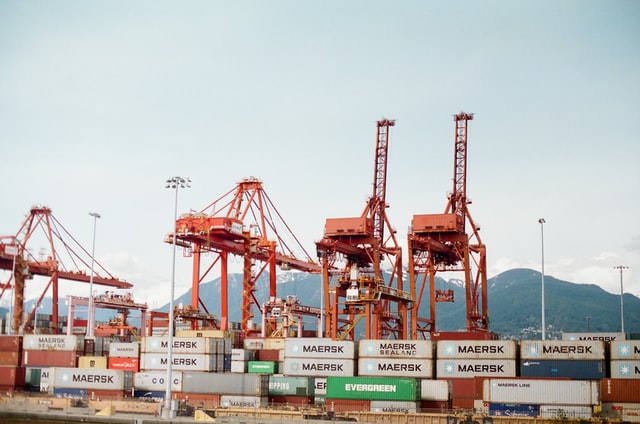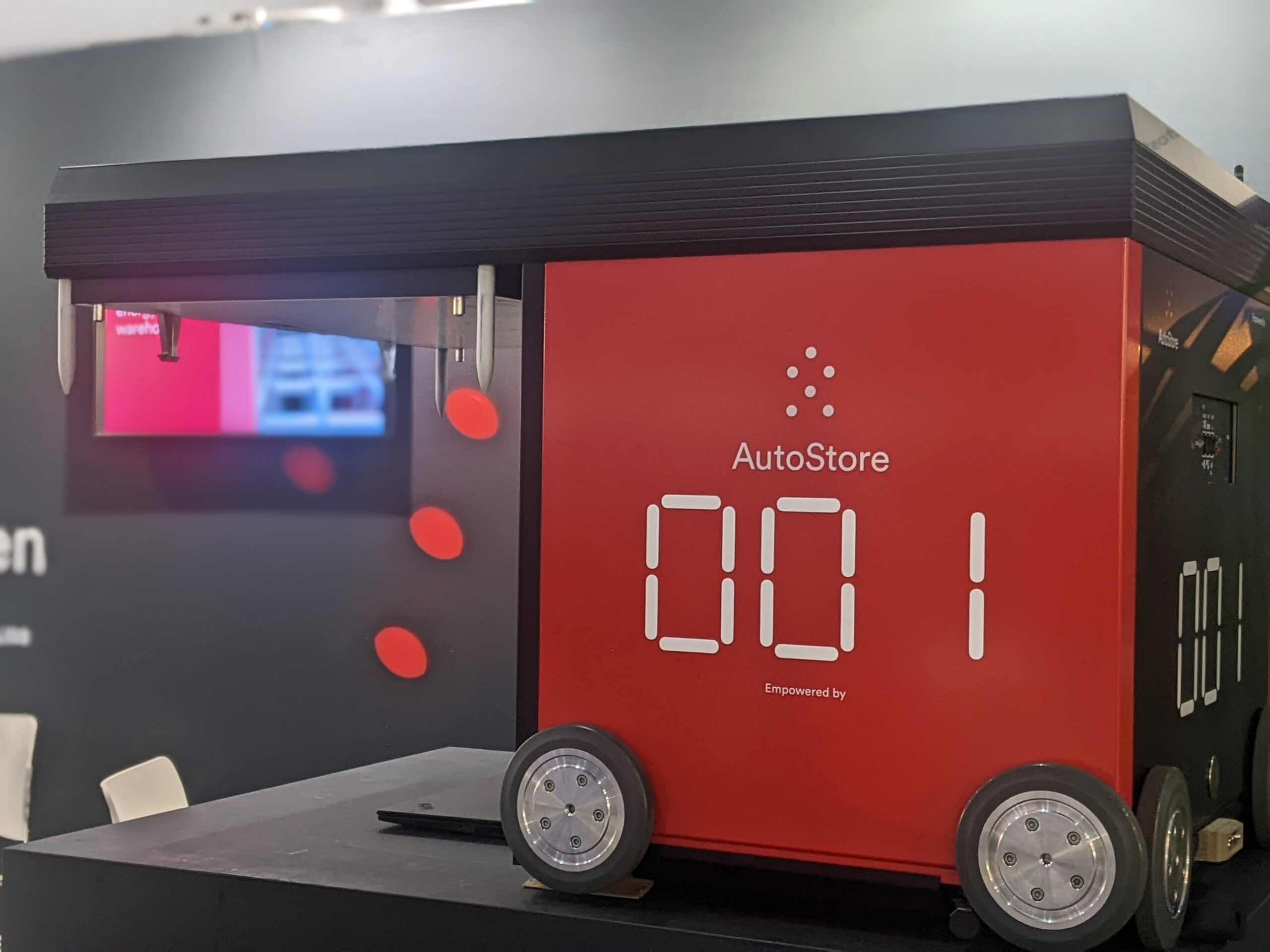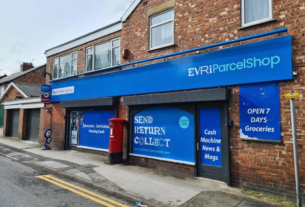Tim Nelson, Chief Executive of Slave-Free Alliance and its parent charity Hope for Justice, explains why human rights due diligence is so important within the logistics industry, and why the sector can be an attractive target for traffickers looking to place their victims.

Alongside the agricultural and construction industries, the logistics sector is among the worst affected by the atrocious crime of forced labour through the trafficking of humans.
The sector can have a high turnover of lower skilled and less secure roles, which are sometimes outsourced, especially within warehouse picking and packing. Although most businesses undertake stringent right-to-work checks for permanent workers, due to the urgent need for candidates that comes with peaks in activity, reliance is often placed on external recruitment agencies to complete checks for seasonal or temporary workers.
Unfortunately, recruitment agencies, and even internal HR personnel under pressure, can often miss the signs of modern slavery. Traffickers understand this, and are adept at exploiting any weakness they perceive that allows them to place a victim within an organisation without detection.
Post-Brexit, the logistics sector also faces further risk of infiltration by traffickers. Many EU workers have left the UK. This has left many organisations feeling pressure about how they will address the deficit.
Furthermore, European workers in low skilled, low paid logistic jobs who lacked the life and language skills to apply to legally remain in the UK, may have also been exploited by traffickers who seized the opportunity to take advantage of their predicament.
The law
The Modern Slavery Act 2015 specifies that any UK company with revenues over £36m must publish an annual report on the actions they are taking to combat modern slavery, working towards the common goal of a supply chain free from slavery.
Companies required to issue statements include hauliers such as DHL and Eddie Stobart, and last-mile carriers such as Yodel, who were the first logistics sector member of Slave-Free Alliance.
Doing the right thing
All businesses have a responsibility to contribute to a better society and working environment for all. The Modern Slavery Act has also created a domino effect down the supply chain; modern slavery compliance parameters imposed upon industry-leading brands are being pushed onto their suppliers. If a supplier cannot demonstrate robust proactive action in modern slavery prevention, they can be excluded from tender processes with explicit ethical sourcing requirements.
Initiatives that push corporate responsibility onto suppliers include L’Oréal’s Solidarity Sourcing, and Unilever’s Supplier Qualification System, which is heavily driven by its Responsible Sourcing Policy.
Offering support to migrant workers is essential. Multilingual literature highlighting the signs of modern slavery, and how to respond to them, should be displayed in the workplace.
Training key staff members, or at the minimum security and HR personnel, to spot the signs of exploitation is vital. Refresher training is essential, as is evaluating delivery and comprehension – quizzes are good.
If an employee appears to have been physically abused or acts withdrawn, is escorted to and from work, wears dirty clothes or has an unkempt appearance, carries few possessions and seems frightened, there could be a very real chance they are trapped in modern slavery.
Fear or paranoia are also likely to visibly increase when spoken to by a staff member or a person of authority, therefore it’s advisable not to approach the suspected victim with your concerns directly. This makes it vitally important to have an escalation process in place with clear, strategic steps to take in the event of potential victim discovery.
At the very minimum, a whistleblowing policy and well publicised helpline should be provided, which gives any staff member with concerns a safe, confidential place to voice them.
Questions to ask of staff
If you talk to a worker and suspect something is not right, do not hesitate – investigate! Firstly, if an interpreter is needed, insist on engaging someone independent. Do not use someone known to the interviewee (we often see traffickers pretending to be interpreters).
If the worker says they migrated for work, have they paid fees to anyone along the way? Were they asked for money to secure the interview or job?
Ask for and check references. If the worker is being paid into a bank account, ask if they have the card for that account (if not, who does?) Ask about where they live – do they know the address? How many live there? Does it match any address you have on file? How did they find the accommodation? How do they get to work?
Check ID and age – see Home Office’s ‘An Employer’s guide to right to work checks’, updated March 2022.
If you are using a labour provider, are you confident they know to ask all of the above questions? Can you check?
Finally, be assured that while traffickers are brutal, they are also entrepreneurial, organised and innovative. The suggestions above only scratch the service in corporate modern slavery prevention.
How Slave-Free Alliance can help
To ensure you are properly protected, we recommend you contact us at Slave-Free Alliance. We offer support for organisations of all sizes, from in-depth advice on effective training, to achieving a high-quality remediation process, and all of your other necessary processes, including Disciplinary; Whistleblowing; Discrimination; Grievance; Recruitment; Induction.
We also offer technical consultation, on-site modern slavery assessments, and a proactive or reactive investigations service.
Let’s end modern slavery together. You’ll also contribute to the worldwide fight against modern slavery; all profits made by Slave-Free Alliance are reinvested into Hope for Justice’s charitable activities.



